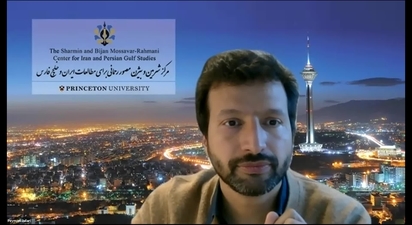Authors: Peyman Jafari & Robert Vitalis
Affiliation: Sharmin and Bijan Mossavar-Rahmani Center for Iran and Persian Gulf Studies, Princeton University
Organization/Publisher: Media Central @ Princeton University
Date/Place: November 24, 2020/USA
Type of Literature: Book Presentation and Interview
Length of Video: 55 minutes
Keywords: Oil, Middle east, US hegemony, Imperialism
Brief:
In this talk, Robert Vitalis lays out the central argument in his most celebrated new book Oilcraft: The Myths of Scarcity and Security That Haunt U.S. Energy Policy. Oilcraft challenges the idea that American power in Western Asia is necessary to protect global oil supply to first the United States and then its allies. This myth is not only prevalent in right wing policy circles but also left-wing critiques of American empire. Vitalis argues that oilcraft works like witchcraft or racecraft (a term he borrows from critical race theorists) in which pseudo-scientific notions such as witches or races are real concerns. Oil’s mythical power drives much of American military strategy and its critique; however, according to Vitalis oil operates much like all other commodities on the world market and therefore military presence in and around oil reserves does very little to secure the availability of oil on the world market. There are false widespread beliefs of oil as power and the need to gain access or stabilize prices. According to the research presented in this book, nothing the US military has done has achieved any of the reasons given. One example of the kinds of beliefs that undergird this line of thinking is that the United States is dependent on Middle East oil. This idea justifies strategic concessions to Arab monarchies who violate democratic values as a sign of dependency. However, Vitalis shows that in reality, the US has imported roughly the same amount of oil from Saudi Arabia as it did from Venezuela. However, the dependency on Venezuelan oil did not prevent the US from actively intervening in Venezuela, while it remains tolerant of Saudi abuses of power. Despite these stark facts, policy experts continue to argue that the US fulfils a vital function in securing access to Arab oil. Vitalis argues that in a global commodities market driven by buyers and sellers, everyone can access oil. The military presence does not secure or guarantee the flow of oil. Vitalis relies on the work of US grand strategist Barry Posner who argues that there is no evidence to prove that US military expenditure has preserved order, guaranteed supply or stabilized price. Closely following historical data of commodities prices on the world market shows that oil, like all commodities, rises and falls in tandem. The demystification of oil leads Vitalis to ask: if not oil, what motivates US military intervention into Western Asia? To this he suggests that the US is simply driven by the need to display global hegemony. While this may or may not be the case, what is conclusive from Vitalis’ work is that there is no direct benefit to the US or to its allies in securing natural resources through raw military power. In fact, much of what the US has done in Iraq, Iran, and Venezuela amounts to acts of disruption in the flow of oil—not the other way around.
By: M. Üveys Han, CIGA Senior Research Associate




